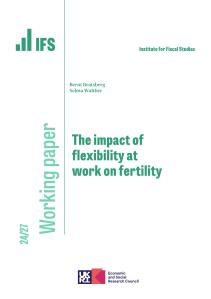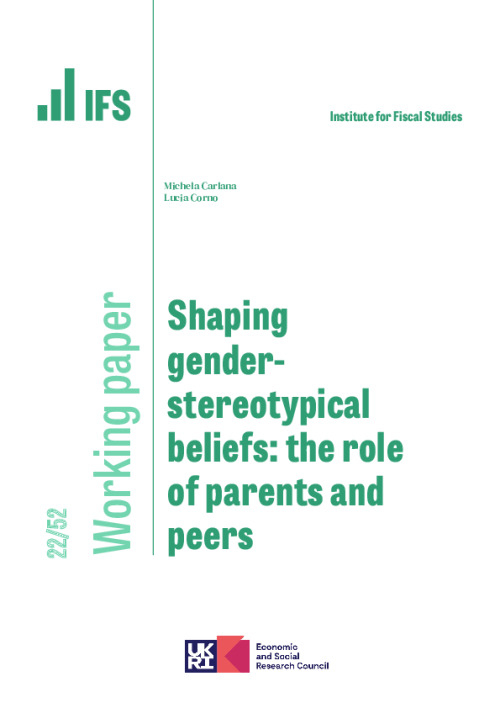Downloads
We use a lab-in-the-field experiment to explore the influence of parents and peers in shaping adolescents’ beliefs on whether they are better in male-typed fields (math) versus female-typed fields (literature). We find that thinking about parental recommendation affects students’ beliefs on their comparative advantage in math with respect to literature in a gender-stereotypical way: conditional on ability, girls are 33% more likely to think they are better in literature when they expect their mothers to recommend it, and boys are 15% more likely to think they are better in math when they expect their fathers to recommend it. Our results also show that while peers do not influence boys’ beliefs on their comparative advantage, girls are less confident in their relative ability in math compared to literature when they must interact with male students in areas outside their gender’s domain.
Authors

Research Associate Universita' Cattolica del Sacro Cuore
Lucia is a Research Associate of the IFS and an Associate Professor in the Department of Economics and Finance at Cattolica University.
Michela Carlana
Assistant Professor of Public Policy Harvard Kennedy School
Working Paper details
- DOI
- 10.1920/wp.ifs.2022.5222
- Publisher
- Institute for Fiscal Studies
Suggested citation
Carlana, M and Corno, L. (2022). Shaping gender-stereotypical beliefs: the role of parents and peers. 22/52. London: Institute for Fiscal Studies. Available at: https://ifs.org.uk/publications/shaping-gender-stereotypical-beliefs-role-parents-and-peers (accessed: 30 June 2024).
More from IFS
Understand this issue

What does the Conservative's higher education announcement this week mean for apprenticeships and 'low-value' university courses?
1 June 2024

Election Special: Is there a 'conspiracy of silence' between both parties?
6 June 2024

If you can’t see it, you can’t be it: role models influence female junior doctors’ choice of medical specialty
24 April 2024
Policy analysis

Free breakfast clubs in schools: what Labour’s plans would mean for pupils and families
25 June 2024

How do the last five years measure up on levelling up?
19 June 2024

The uncertain course for school and college funding over the next parliament
19 June 2024
Academic research

Targeting men, women or both to reduce child marriage
28 May 2024

The intergenerational elasticity of earnings: Exploring the mechanisms
3 June 2024

The impact of flexibility at work on fertility
11 June 2024
